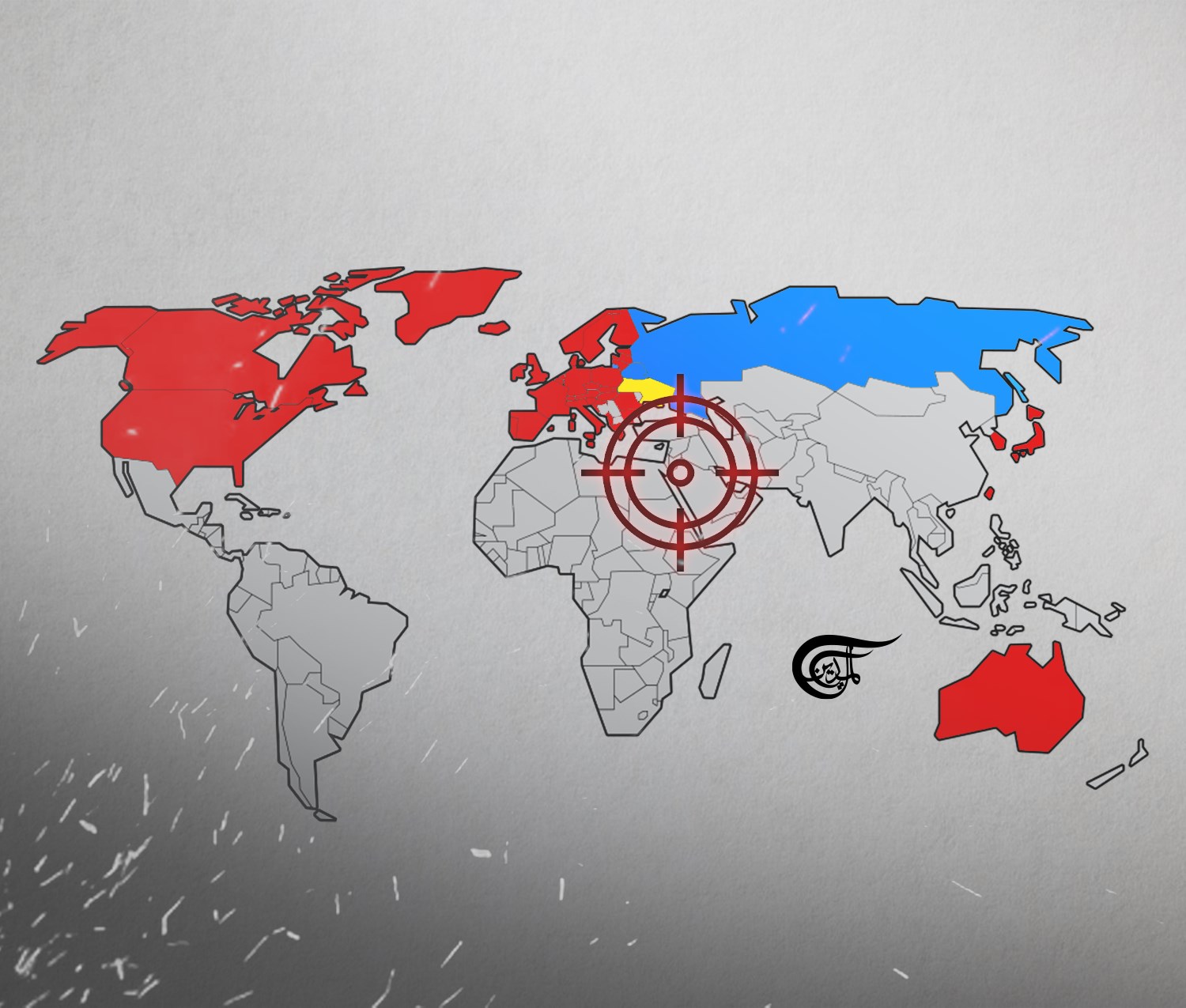Middle Eastern Geopolitics in The Midst of The Russo-Ukrainian War
In the near future (within the next five years), when Russia's global economic embargo will cover more civilian items than military ones, it will be difficult for Russia to limit the influence of Arab disputes on its relations with all Arab countries.
-

"Irresponsible" would be a better word to describe Ukraine's attempt to join NATO
Russia's national interests have been harmed by the West's efforts to obstruct Eurasia's integration and provoke conflict. Support from the United States and the European Union for Ukraine's anti-constitutional coup d’état sparked a societal upheaval and a bloody conflict. Right-wing nationalist ideology is getting more and more popular, Russia is being painted as an enemy in Ukrainian society, the violent resolution of internal problems is being gambled on, and a profound socioeconomic catastrophe is making Ukraine a chronic centre of instability in Europe and along Russia's border.
US military-biological labs in Russia's neighbors are being expanded. There are four ways Russia utilizes to keep the world safe: political, legal, diplomatic, and military. To protect national interests, armed force can be employed only after all other options have failed.
NATO has effectively rendered Russia's Black Sea control worthless in terms of gaining access to warm water. "Irresponsible" would be a better word to describe Ukraine's attempt to join NATO. Russia's Eurasian aspirations are jeopardized by Ukraine's proclivity for self-determination. From Ukraine to Abkhazia, Russia seeks to control the northern Black Sea coast and to turn it under its sovereignty. For Russia, it is necessary to remove Western influence from this region and Russia's immediate surroundings. However, it is impossible for Ukraine to remain "neutral" because of its geopolitical and ethnic realities.
Russia's geopolitical security is threatened by Ukraine's borders and sovereign orientations, which are equivalent to invading Russia's land. Eastern Ukraine (east of the Dnieper River to the Sea of Azov) is inhabited by Great Russians and Orthodox Little Russians, whereas the rest of the country is controlled by Ukrainians. Anti-Russian sentiment runs deep in Crimea, a region with a wide range of nationalities (such as the Tatars). Crimea is under Moscow's authority for strategic reasons. From Chernigov to Odessa, an area has cultural ties to Eastern Ukraine and a place in the Eurasian geopolitical context.
The Eurasian core (Russia) and the European core (Germany) should work together to complete the long-term disengagement between Europe and the United States by forming a Eurasian continental military complex.
Russian intervention in Ukraine is urgent in order to avert an attack by NATO. The foregoing suggests that Russia's policy of severing all ties with Western security systems in the vital territory directly adjacent to Russia is being carried out in Ukraine. The only way to achieve this aim peacefully is to use force.
There are two main actors engaged in this conflict; the Russian Federation (the official heir to the USSR) and the United States, which is slipping in several soft and hard power indicators. Paul Kennedy saw imperial overstretch as a precursor to strategic decline for the United States, while Richard Barnet predicted decline for the United States in the 1980s. Flora Lewis' research, published a year after Paul Kennedy's, confirmed the fall of the United States. It was prophesied by James Schlesinger that the United States will lose both its economic and military power. Peter Passell and Tom Wicker argued that the United States has lost its economic and scientific leadership to Japan because of its dependence on foreign sources of raw resources and energy.
According to Niall Ferguson's 2004 study on US diclinism, the United States wants to expand free markets, the rule of law, and representative government around the world, but it is unwilling to make the long-term investments in human capital and financial resources necessary to end conflict resulting from state inefficiency. When it comes to internal weaknesses like financial deficits and people power, as well as ignoring global responsibilities, he thinks that the United States is a failing empire that refuses to accept its own demise. "Terrorist" groups and organized crime gangs will fill the void, he predicts. Ferguson sees this as a strong endorsement of the US-China-European partnership.
Biden should not threaten China and should treat Russia as a serious power in Eurasia, as argued by one of the most anti-EU thinkers in the United States, Francis Ferguson, Jr. An analysis conducted by the US National Intelligence Council in 2008 predicted that the international system would become more multipolar due to the emergence of new major powers, the continuation of economic globalization, the transfer of wealth from the West to the East, and the expansion of sub-state and supra-state entities.
According to the report, by 2025, there would be less disparities between regions and governments in the international system. In order to avoid further collapse in Russia's interior and to enlarge Russia's critical space, each empire looks to exploit geostrategic territories. NATO's laxity has made it easier for the other empire (the United States) to halt its collapse and strengthen relations with Europe.
All of the foregoing has an impact on the Middle East, particularly on the Arab region. The Middle East is no longer a priority for US policy, according to President Joe Biden's strategic plan. Some countries in the region have attempted to compensate for the loss of the United States by forging ties with Israel to counter internal opposition and strengthen the anti-Iran coalition.
It is possible that the Ukraine issue could divert American attention away from the Middle East in the next months, which could have an impact on Arab relations with "Israel," Iran and Turkey. Because of the lack of response from the Middle East in response to US demands about the Ukrainian issue (blockade of Russia, military support for Ukraine, increased gas and oil production, etc.), there has been a "relative" shift in the region's position in US strategy.
Currently, there are many thorny issues in the Middle East, including: Russia's policy in the Arab region is hampered by its inability to overcome regional power imbalances. Russian, Iranian and Israeli differences. Reconciling Iran with Gulf States and a number of Arab nations. Reconciling the security needs of "Israel" and Syria. Israeli demands vs. Russian pledges on Palestinian rights.
The trade volume differential between Russia and the Arab region just adds to the complexity of these political issues already in existence. Over the previous three years, Russian trade with the Arab world has averaged $18 billion each year. One group of Arab countries imports Russian civilian goods, such as wheat and iron, whereas the other group imports Russian military equipment. Russia exports civilian goods to Egypt, Morocco, UAE, Saudi Arabia, Tunisia, Jordan, and Qatar. After Syria, Algeria (81 percent), Iraq (44 percent), Egypt (41%), and the United Arab Emirates (5.3%), Russian arms sales to Arab countries account for 21 percent of Russia's overall sales, or $5 billion yearly, making them the top five countries acquiring Russian weaponry.
It's not uncommon for relations between Arab countries that acquire Russian civilian items and those that import Russian military hardware to be strained. In the near future (within the next five years), when Russia's global economic embargo will cover more civilian items than military ones, it will be difficult for Russia to limit the influence of Arab disputes on its relations with all Arab countries.
Due to its military-to-civilian trade imbalance, Russia may have to reassess its regional priorities. Relations between the Arab world and Russia could take a dramatic turn in the near future. Russia's trade with "Israel" ($3.5 billion) and Iran ($777 million) is impossible to compare. Even in light of the boycott, Russia's relations with Iran and "Israel" will be problematic.

 Mohamad Zreik
Mohamad Zreik
 7 Min Read
7 Min Read











